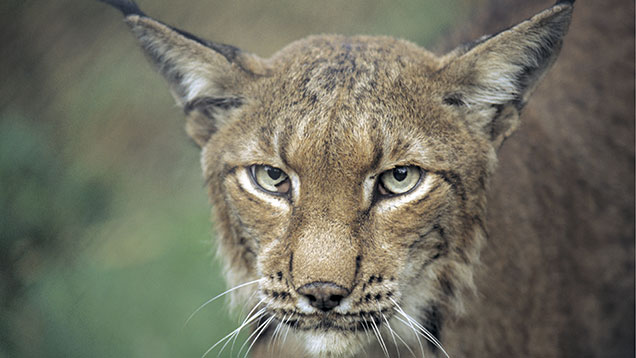Lynx release ‘needs serious consideration’
 © Rex
© Rex Plans to release wild lynx into the English countryside would need “very serious consideration” before permission is granted, says Natural England.
In a statement released on Wednesday (29 April), Natural England said the Eurasian lynx had been absent from Britain for about 1,300 years.
“As it is no longer recognised as a resident species, the release of lynx into the wild in Britain would be unlawful unless licensed.”
In England, the licensing body which would decide whether plans by the Lynx UK Trust to release the animals should be granted is Natural England.
See also: Public support lynx release, claims trust
Natural England said so far it had only a single preliminary meeting with the trust’s legal advisers to describe the process before any licence submission could be considered.
“Any application to introduce lynx into England would need very serious consideration in terms of its impact right across the UK,” said the Natural England statement.
If such an application were made, Natural England would consider the reintroduction of the species according to a a number of rules and regulations.
This included prevailing legislation, international guidelines and would follow public consultation and evidence gathering – and taking into account any input from government.
The National Sheep Association has written to the Lynx UK Trust asking it to engage with farmers who will be affected by the project.
The association has warned that reintroducing lynx would directly impact on sheep farmers and other rural businesses.
NSA chief executive Phil Stocker said: “It is very easy to promote a nice image for the general public around the ‘big cat’.
“However, these animals are high-level predators whose reintroduction would directly impact on sheep farmers and related businesses.
“Lynx UK Trust will soon find itself in a situation where it has huge public support but has alienated farmers, land managers and those who depend on the land for their livelihoods.”
The trust’s suggestion that sheep farmers could be easily compensated for any livestock killed by the predator was one example of misinformation surrounding the plan, said Mr Stocker.
Compensation for losses was not at all easy – as historical and current livestock compensation models showed, he added.
“Compensation would not be a straight-forward option for the sheep sector, as who will determine the value of the animal?
“If a lynx happened to kill a high-genetic merit animal from a specific bloodline, that animal is arguably irreplaceable.
“Or if it killed a baby lamb, would it be valued at its financial worth that day or the much higher value it would have grown into given the chance to thrive and grow?
Each sheep on each farm had a different financial worth depending on the situation and business, said Mr Stocker.
“Determining the value of each animal is incredibly complex, and any general compensation figures would potentially devalue the livestock, the distress to the animal and its owner, and the time involved.”
